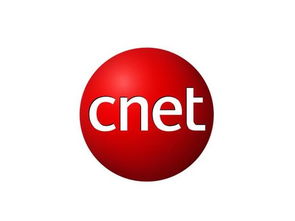Understanding CNET: A Comprehensive Overview

CNET, a name that has become synonymous with technology news and reviews, is a platform that millions of tech enthusiasts turn to for the latest updates and insights. In this detailed exploration, we delve into the various aspects of CNET, from its inception to its current status as a leading tech media outlet.
History and Founding

CNET was founded in 1994 by Halsey Minor and Shelby Bonnie. Initially, the company focused on producing television programs related to computers, technology, and the internet. The vision was to create a space where technology could be explored and understood by a broader audience. Over the years, CNET has evolved, expanding its reach through various media channels, including its website, CNET.com.
Global Presence and Language Support

CNET has a significant global presence, with operations in 15 countries. The platform offers content in 9 different languages, catering to a diverse audience across the world. This global reach is a testament to CNET’s commitment to providing relevant and accessible content to tech enthusiasts worldwide.
Content and Coverage
CNET.com is a treasure trove of information for tech enthusiasts. The website offers a wide range of content, including news, reviews, articles, blogs, podcasts, and videos. Whether you are looking for the latest updates on technology trends, reviews of the latest gadgets, or in-depth analysis of tech products, CNET has got you covered. The platform covers a wide range of topics, including science news, new technologies, consumer electronics, cars, smart home products, and more.
Impact and Influence
CNET has a significant impact on the tech industry. The platform is widely recognized as a leading source of information and reviews in the tech world. Its influence is not limited to just providing information; it also shapes consumer perceptions and buying decisions. CNET’s reviews and recommendations are often considered authoritative and reliable, making it a go-to platform for many tech enthusiasts.
Community and Engagement
CNET is not just a source of information; it is also a community. The platform encourages reader engagement through its active community forums, where tech enthusiasts can discuss, share, and learn from each other. This community aspect adds a unique dimension to CNET, making it more than just a news and review website.
Business and Partnerships
CNET has formed strategic partnerships with various companies and organizations in the tech industry. These partnerships help the platform to expand its reach and offer more value to its audience. CNET also collaborates with manufacturers, online retailers, wholesalers, and resellers to provide comprehensive product information and reviews.
Challenges and Controversies
Like any other media outlet, CNET has faced its share of challenges and controversies. One notable challenge was the introduction of AI-generated content, which sparked a debate about the future of journalism. Additionally, the platform has faced criticism for its SEO practices, including the deletion of old articles to improve search rankings.
Future Prospects
Despite the challenges, CNET remains a leading force in the tech media industry. The platform continues to innovate and adapt to the changing landscape of technology and media. With its commitment to providing accurate, reliable, and engaging content, CNET is well-positioned to remain a key player in the tech media space for years to come.
| Year | Significant Milestones |
|---|---|
| 1994 | Founded by Halsey Minor and Shelby Bonnie |
| 2008 | Acquired by CBS Interactive |
| 2020 | Acquired by Red Ventures |
CNET has come a long way since its inception in 1994. From a small television production company to a global leader in tech media, CNET has consistently evolved and adapted to the changing landscape of technology and media. Its commitment to providing accurate, reliable, and engaging content has made it a go-to platform for tech enthusiasts worldwide.



